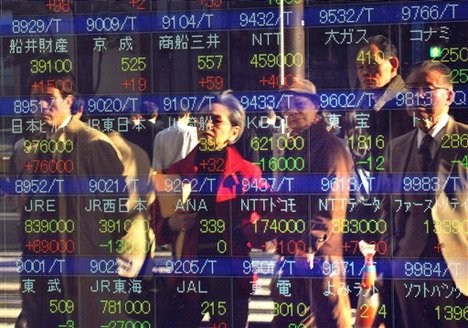Investing
Returns above inflation: your investment options

Stocks, gold, property, fine wine or art: where will you put your money?
Charles Stanley Direct’s head of investment research, Ben Yearsley, offers his take on the various asset classes available to investors:
Let’s get one thing straight, outside cash there are no low-risk investment options right now.
Even government bonds look shaky in respect to some heavily indebted European countries and the bonds of nations with sounder finances offer scant returns, often significantly below the rate of inflation.
Since the start of the global financial crisis six years ago, investors’ perception of risk has changed. They have prioritised safety over growth – hence the high price and low yields of ‘safe-haven’ government bonds. The Cypriot crisis has been a further wake-up call: even cash held in some banks is no longer sacrosanct.
Yet there are a variety of investments I believe are capable of long term returns ahead of inflation – the goal of most investors. Here are my current thoughts on the most noteworthy:
Equities
Equities remain a sensible, albeit more volatile, investment choice for those looking to maximise returns over the long term.
They are not the bargains they were a couple of years ago, but with generous dividend yields of up to 5% there is still good reason to suppose equities will perform well against a backdrop of moderate inflation and ultra-low interest rates.
Equity income funds can offer a healthy starting level of income that has the potential to rise significantly over time.
The income can either be taken or reinvested for growth. Equity income funds on the Foundation Fundlist include Artemis Income and JOHCM UK Equity Income.
Gold
Following the worst sell off in gold for 30 years many investors are scratching their heads.
A fall in the gold price of around 13% over two days in April is exceptional and seems at odds with an environment of low interest rates and quantitative easing. In theory, gold, whose supply is finite, should appreciate as more paper currency is printed.
The recent price dip serves to highlight the complexity of the gold market. Although sometimes seen as a safe haven asset, it is not always the case. Investors flocked to gold in the summer of 2011 during the eurozone debt crisis, yet during periods of more extreme market stress the price has fallen.
With the advent of exchange traded products gold has become easily tradable, which adds to its volatility – it is certainly not a substitute for cash, but the recent fall could interest those looking for a bargain. A physically-backed gold ETF is worth considering or, for the more speculative, a gold mining fund such as BlackRock Gold & General.
Commodities
Other hard commodities, especially base metals seem intrinsically linked to Chinese growth.
As growth has slowed, they have taken a tumble, showing extreme levels of volatility in some cases. Soft commodities (wheat, corn, sugar and so on) move to a different beat, and as the world’s population has gone through seven billion, demand continues to increase.
However, each has its own unique supply and demand dynamics including fickle factors such as the weather. Interestingly, it is entirely possible in the near future that water will become a tradable commodity, like oil is today, as it becomes scarcer.
Infrastructure
Infrastructure investing provides the backbone of many countries: roads, airports, mobile phone masts, electricity networks and water distribution.
High-profile investments by sovereign wealth funds have highlighted the attraction of infrastructure – inflation proofed cash flow from essential assets.
One way to access this is through First State Global Infrastructure fund, which invests in utility companies as well as firms involved in roads, railways, ports and oil and gas storage.
It should be noted that the fund doesn’t invest directly in physical infrastructure, so the risks involved are those normally associated with equities.
Property
Property in some of the world’s top cities has appeared recession proof. Money has flowed into prime residential and commercial London real estate in recent years, for example, bucking the general property downturn.
However, it has been a different matter for secondary property in the regions. With lots of competition, especially in retail, rents have been under pressure.
For those with the expertise and a long time horizon, property offers an income orientated access to a real asset; however, for now, I find it difficult to get excited about property as an investment.
Art and wine
Art has proved somewhat recession-proof over the last few years with prices seemingly going ever higher. Yet the costs of ownership can be significant and there are expensive commissions when dealing with auction houses.
Fine wine, meanwhile has been more volatile. For most of the last decade, prices increased with many great French vintages declared. However, with a downturn in Chinese demand prices have fallen back to more reasonable levels.
Fine wine prices used to be correlated to how well the City was doing; now it seems they are linked to Chinese economic health – as with many investments it seems!